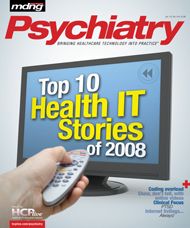Code Overload
The ICD-9 medical coding system we’ve all relied on for decades will soon change.
The ICD-9 medical coding system we’ve all relied on for decades will soon change—and it’s not going to be an easy or cost-free transition for most of us. The new system, ICD-10, is a radical departure from ICD-9, under which the number of diagnosis and procedure codes will increase from approximately 16,000 to more than 155,000. For many of us who use the same hundred or so codes all the time, the reasons behind why the code set will expand tenfold are difficult to comprehend and feel like more of the same bureaucracy that has brought us HIPAA and CCHIT.
Because there aren’t thousands of new disease states, most of the new codes are sub-sub divisions of existing codes designed to capture more detail. For example, consider a patient who comes in with a sore throat. In ICD-9, the physician would likely code a 462 as the diagnosis (Acute pharyngitis, which includes most common iterations, such as suppurative, infective, and not otherwise specified [NOS] and excludes about a dozen others, such as abscess, chronic, Mono, flu, and Strep). Coding the same patient under ICD-10 would require the physician to choose from among four codes that differentiate between an acute sore throat, Strep, other causes, and NOS, each of which has inclusions and exclusions as well, leading to a decision tree containing dozens of sub-choices. Another example is coding an ankle sprain. With ICD-9, there are five detailed codes essentially locating which ligament is involved (845.xx). In the ICD-10 code set, however, you end up with 45 codes. The additional codes allow the provider to describe, among other things, the location of injury on the ankle joint, the degree of injury, whether it is a first-time injury, and cause of injury.
Considering there will be increases in coding categories across the board, documenting and coding simple diagnoses will require much more physician decision making. Proponents of the new system argue that it will improve the quality of patient care, help track outcomes and other vital information used for research and distribution of prevention resources, and provide a more rational approach to payment systems. Sounds great, but who is going to pay me for this extra time and work, or for the EHR that can figure this out behind the scenes? For physicians like me with small medical practices, ICD-10 represents the frightening prospect of a steep learning curve, more coding and billing errors, and figuring out how to capture and record more clinical information during the course of an already too-short patient visit.
What’s the answer? One option is to not play the game at all and refuse to accept third-party payments, though most of us likely don’t have the stomach for this level of dissent (But can you imagine a world in which patients paid you directly and then had access to affordable catastrophic insurance for additional needs?). But that’s a discussion for a future article…
More likely, we’ll need to adopt complex EHR software that can help us do the coding. Based on how most of us use ICD-9, I suspect we’ll just end up with a tenfold increase in incorrect codes that don’t really describe the true nature of the diagnosis. Even worse, this further degrades the doctor—patient relationship as the patient becomes more of a traceable and codified commodity, whose numeric summary further moves them away from what most patients (and their providers) really want: an honest, straightforward relationship with a well-educated physician who can provide logical guidance in dealing not only with sore throats and ankle sprains, but also childbirth and rearing, anxieties and depression, and, perhaps most importantly, end-of-life issues. Isn’t that why most of us went into this field in the first place?
Dr. Bertman is Physician Editor-in-Chief of MDNG: Primary Care/ Cardiology Edition. He is a Clinical Assistant Professor of Family Medicine at Brown University and president of AmazingCharts. com, a leading developer of EHR software. He is also the founder and president of AfraidToAsk.com, a consumer website focusing on personal medical topics. He is in private practice in Hope Valley, RI.
